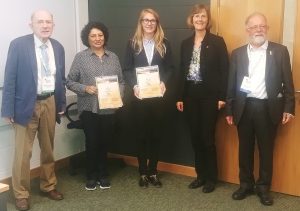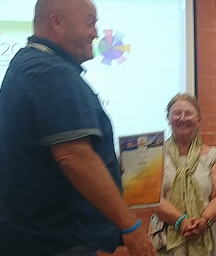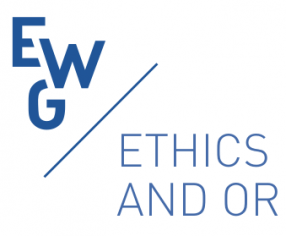The EURO Prize for OR for the Common Good 2024
In 2020 EURO introduced the EURO Prize for OR for the Common Good (EPOCG) and we will repeat this very successful procedure in 33rd European Conference of Operational Research in Copenhagen, Denmark 2024. This prize shall honour outstanding accomplishments of OR for solving social-oriented problems. Contributions with a global scope and a wide range of potential applications are preferred. All interested candidates are invited to submit a description of an application of OR with a real impact on society for the common good, with original features, whether in methodology, application or implementation. A short-list of finalists are invited to present their work in a special session of the EURO-k Conference. The winner is determined by the jury at the end of the special session(s) and is announced by the chair of the jury during the closing session of the EURO-k Conference. Only one award may be made on each occasion.
The purposes of the competition are to:
- recognise outstanding contributions to addressing global challenges through the application of OR,
- raise awareness of the important role OR can play in contributing to global challenges such as the UN Sustainable Development Goals.
The Prize:
- a certificate of for each representative of the paper
- an amount of €3,000 shared between the representatives.
Jury of the EURO Prize for OR for the Common Good 2024
- Cathal Brugha (Ireland) – chair
- Claudia D’Ambrosio (core member)
- Alec Morton (core member)
- Eeva Vilkkumaa
- Ulrike Reisach
More information is available here: https://www.euro-online.org/web/pages/1668/prize-for-or-for-the-common-good-epocg
Laureates and finalists of the EthOR award:

Picture 2019 left to right: Pierre Kunsch, Michel Carmen Belderrain (award winner), Cindy-Ricarda Roberts, Ulrike Reisach, Cathal Brugha
The 5th edition of the EthOR award In Dublin EURO 2019 was attributed to Mischel Carmen N. Belderrain (Brazil) with the paper “Multimethodology for improving the inclusion of students with Special Education Needs”. The other finalists were Regiane Máximo Siqueira (Brazil); Cindy-Ricarda Roberts and Magdalena Wagner (Germany).
The 4th edition of the EthOR award In Valencia EURO 2018 was attributed to Hans Derks from The Netherlands with the paper “Inhabitants take responsibility of their health position”. Other finalists were Simon Henk Luimstra (The Netherlands) and Bela Vizvari (North Cyprus)
The 3rd edition of the EthOR award in Poznan EURO 2016 was attributed to Ross Kozakov from Bulgaria with the paper ‘Exploring “cultural corruption” in financial organizations: A hybrid modelling approach”. Other finalists were Omar Rifki (Japan) and Irais Mora Ochomogo (Mexico)
The 2nd edition of the EthOR award in Glasgow EURO 2015 was attributed to Anastasiia Lissagor from Poland with the paper “Modeling of sustainable development for municipalities using the complex indicators’ structure”. Other finalists were Lamis Essam Amer (Egypt) and Maryam Goreishi (Iran)
The 1st edition of the EthOR award in Rome 2013 was attributed to Robyn Moore of New Zealand with the paper “Reaching consensus on water reforms: a case of Community Operational Research in Kapiti, New Zealand”. Other finalists were Ruth Carrasco (Spain) and S. Yamina (India)
HANS DERKS



